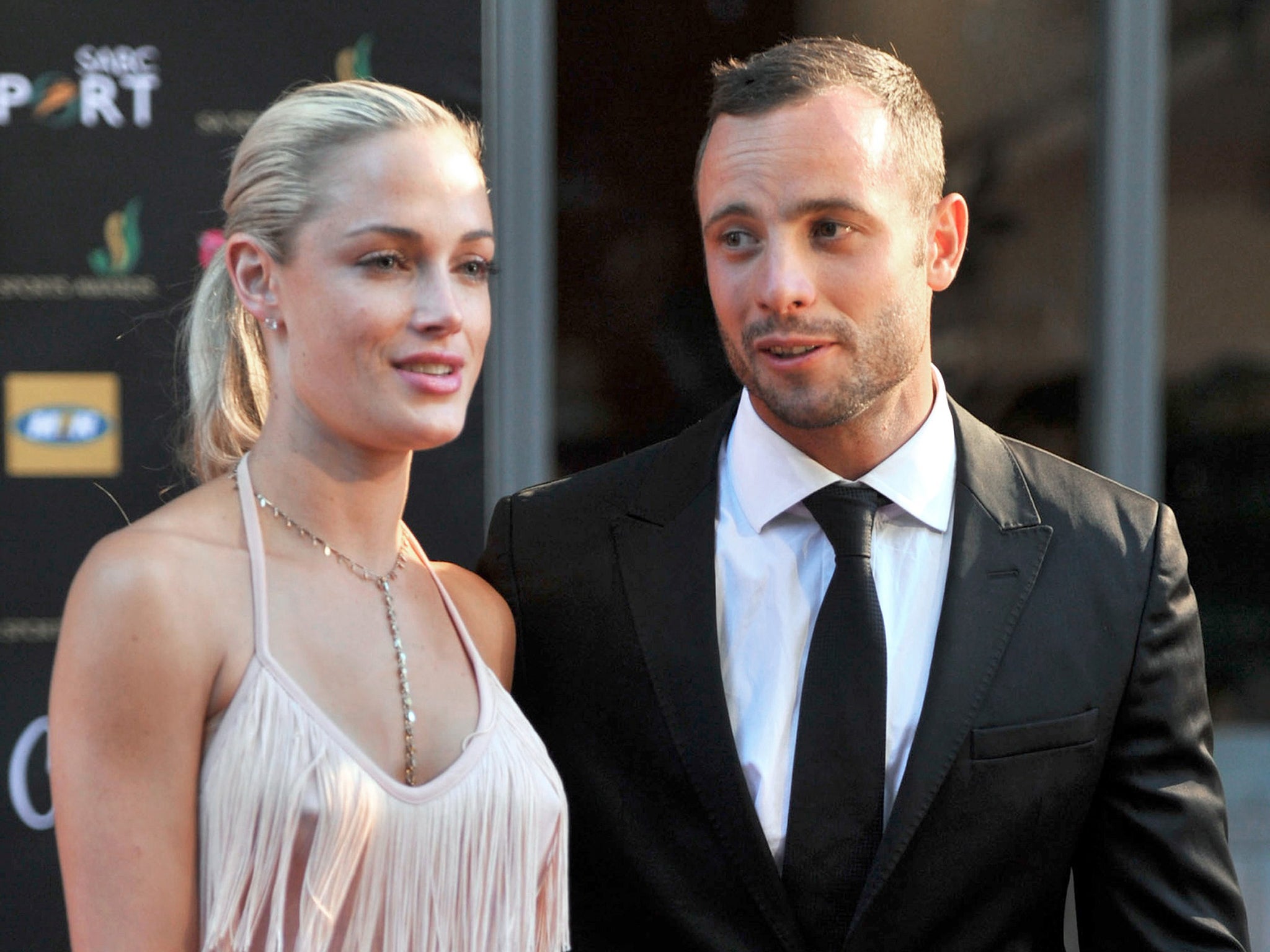Since Reeva Steenkamp's death, 243 women have been killed by male violence in the UK alone
Meanwhile, the refuges that have saved countless women’s lives are being closed

Your support helps us to tell the story
From reproductive rights to climate change to Big Tech, The Independent is on the ground when the story is developing. Whether it's investigating the financials of Elon Musk's pro-Trump PAC or producing our latest documentary, 'The A Word', which shines a light on the American women fighting for reproductive rights, we know how important it is to parse out the facts from the messaging.
At such a critical moment in US history, we need reporters on the ground. Your donation allows us to keep sending journalists to speak to both sides of the story.
The Independent is trusted by Americans across the entire political spectrum. And unlike many other quality news outlets, we choose not to lock Americans out of our reporting and analysis with paywalls. We believe quality journalism should be available to everyone, paid for by those who can afford it.
Your support makes all the difference.Now the dust has settled in the South African courtroom. The camera crews and journalists are packing up and getting their planes home. Pistorius is in a prison cell, facing a five-year sentence, but secure in the knowledge that he may only have to serve ten months of it. Who knows, perhaps his hotly anticipated memoir will be on the shelves ready for next Christmas. The sports committees who make the decisions have ruled that he won’t be allowed to compete for five years. So at least Steenkamp’s family won’t have to hear thousands of fans in Rio cheering the name of their daughter’s killer.
Pistorius’ story is already being re-written. No longer a case of a man who shot a woman dead, it’s now a narrative of the fallen hero. It’s a story about his ‘ordeal’. His ‘fall from grace’. We’re already hearing about his ‘ruined life’ – always written in the passive tense so that we don’t notice he was the active agent in his own ruining. The fact that Reeva Steenkamp’s life is ended remains unspoken.
I believe there’s another story to be told, in the wake of this case. And that’s the story of male violence against women – both in South Africa where a woman is killed by her partner every eight hours, in the UK where a woman is killed by her partner every 3.5 days, and around the world where 1 in 3 women will be raped, beaten or abused in their lifetimes. During the period of Pistorius’ sentencing, approximately 27 women were killed as a result of domestic abuse in South Africa.
Reeva Steenkamp was killed on 14 February 2013 – the same day millions of women followed Eve Ensler’s to dance in defiance of male violence for One Billion Rising. Since her death, approximately 243 women have been killed by suspected male violence in the UK – 118 this year alone. The last woman killed – in my hometown – was just 18 years old. She had her whole life ahead of her. She had hopes and dreams. Whoever killed her stole that future from her.
Some of those women’s murders were followed by an inquiry into police failings. The inquiries found, again, that the police could have acted sooner to protect the victim. The inquiries found, again, that calls for help from the victim were ignored. The inquiries found, again, that if the women were listened to and supported, they didn’t need to die.
Meanwhile, the safety net of refuges that have saved countless women’s lives are being attacked, and closed. As a result, a snapshot day recorded by Women’s Aid found that 150 women with 103 children were turned away from refuges.
Almost every time a woman is killed by a man in the UK, the murder is described by the police as an ‘isolated incident’. But when 118 women are killed by men in nine and a half months, these are not ‘isolated incidents’. These murders are connected. Until we recognise that these are not isolated incidents, that they are part of a pattern of male violence, then we won’t be able to prevent these killings.
Not treating domestic abuse murders as isolated incidents will involve the police taking calls for help from abused women seriously. It will involve a co-ordinated and urgent response to reports from women that their partner is threatening them. It will involve recognising the signs, hearing the cries for help, and ensuring that women are listened to and protected. And it will mean properly funding and supporting the safety net of refuges, so that when women are listened to and responded to, they have somewhere safe to go.
Because we can’t go on like this. We can’t end 2014 with another 140 women dead as a result of suspected male violence. We can’t read another report that highlights police failings in the case of too many of those deaths. We can’t have another day where 150 women are turned away from refuges and forced to return home, knowing that the moment of trying to leave is the most dangerous of all.
We can’t continue to put up with a world where women aged 15-44 are more at risk from rape and domestic abuse than cancer, car accidents, war and malaria. Because that’s not an ‘isolated incident’. That’s a pattern of deadly misogyny that is killing women every day.
Join our commenting forum
Join thought-provoking conversations, follow other Independent readers and see their replies
Comments